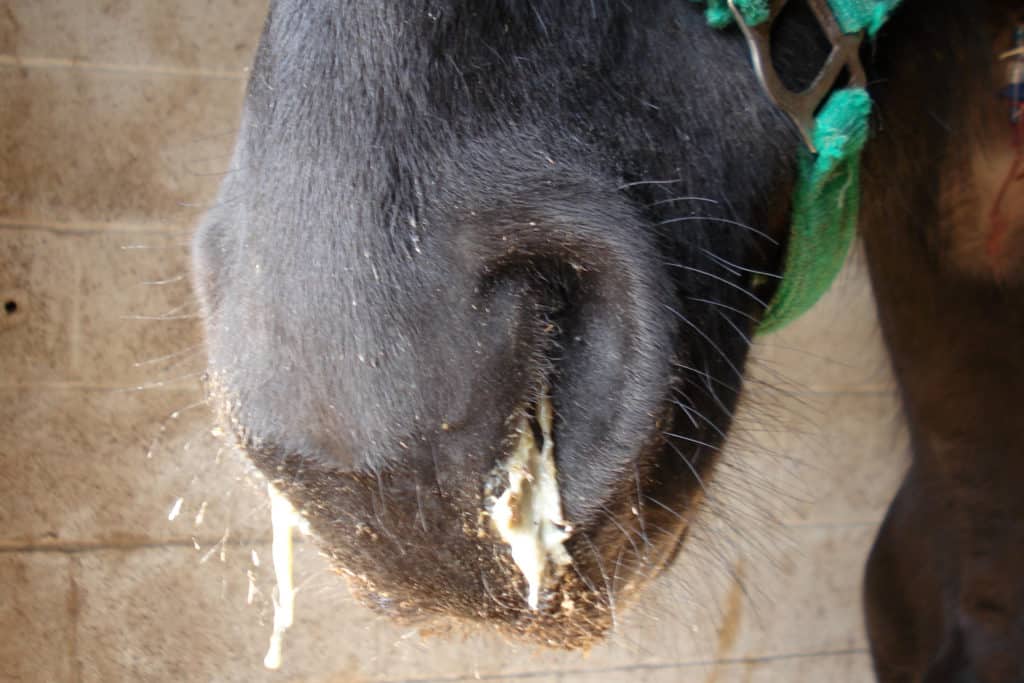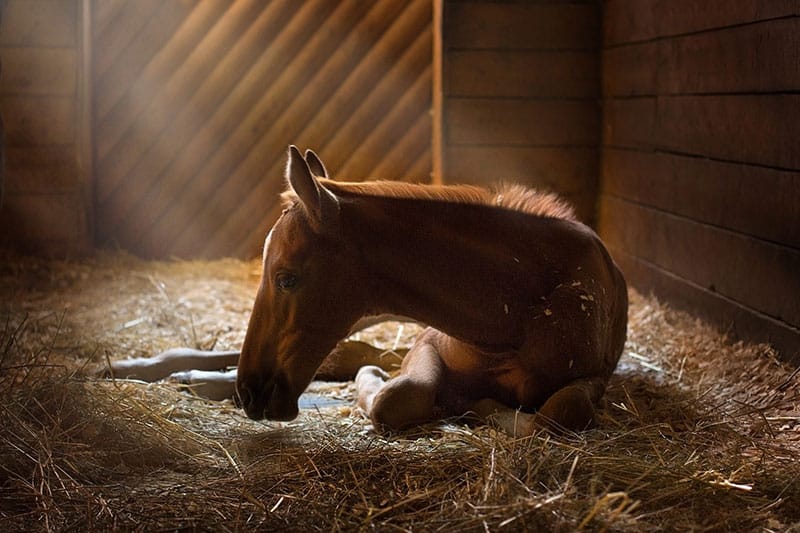
Improving Neurologic Function in Horses
Implementing these rehabilitation strategies might help improve your horse’s prognosis after a neurologic diagnosis.
Horse-health-problem risk factors, prevention, diagnosis, and treatment

Implementing these rehabilitation strategies might help improve your horse’s prognosis after a neurologic diagnosis.

Here’s how to handle a strangles outbreak in your barn and prevent the disease in the future.

Water is an essential nutrient for horses. Find out why it’s important to keep your horses’ water sources clean and explore common challenges horse owners face.

New research shows that veterinarians might need to allow several hours between transportation and testing for conditions such as PPID.

An equine nutritionist breaks down what’s in a grain-free feed and how you might increase calories for a performance horse consuming a grain-free diet.

Horses on antibiotics might experience feeding, housing, and management changes as well as increased stress, which are associated with gastric ulcer development.

Researchers have learned more about equine dental-derived stem cells and potential ways these agents could help treat equine dental conditions.

New research might lead to a vaccine for this highly contagious disease.

How veterinarians are applying computed tomography in equine medicine and what they’re learning about its use.

Learn about the latest research surrounding the neurologic conditions equine neuroaxonal dystrophy (eNAD) and equine degenerative myeloencephalopathy (EDM).

Changing weather patterns can increase your horse’s risk for contracting infectious diseases.

Learn about devices designed to measure equine athletes’ cardiac function and maximize performance.

Learn about 4 cutting-edge treatments for equine eye issues ranging from corneal ulcers to cancer.

If your horse is living in an area with poor air quality, he might benefit from wet or steamed hay and omega-3 supplementation.

Dr. Luke Bass describes the unique joint changes that might be seen in horses with PPID and EMS.

Dr. Howland Mansfield describes signs a horse is ready to retire from riding, ranging from mild work intolerance to lameness.
Stay on top of the most recent Horse Health news with
"*" indicates required fields